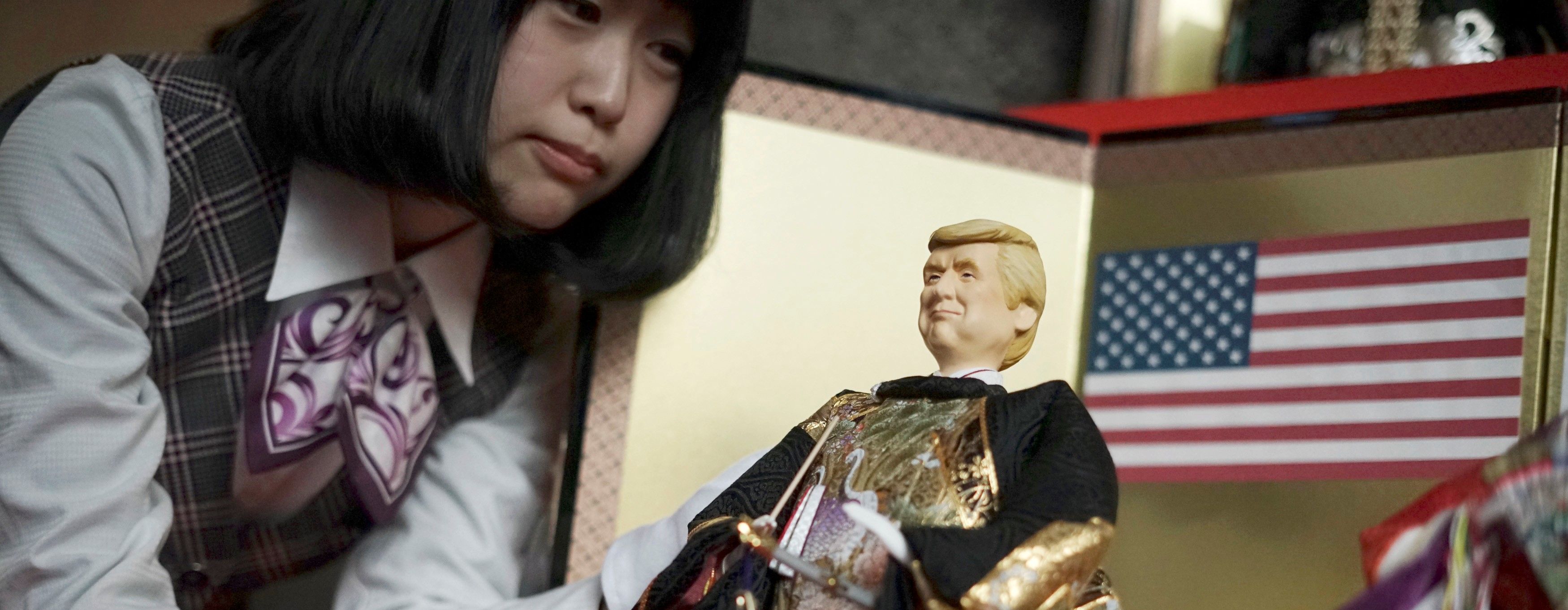
If there is one Twitter account that can be said to have taken 2016 by storm, it is @realDonaldTrump. Now that President Donald Trump has been inaugurated the President of the United States, the importance and impact of his collection of 140 characters has been magnified.
But there is one drawback for this account: it is only in English, making many who do not understand the language unable to tap into the mind of the current leader of the free world.
Across the Pacific, one Japanese student is set to change that by “Making English-learning great again”.
Tweeting as @DonaldTrumpJPN, an anonymous 17-year-old Japanese high school senior who goes by the pseudonym K・T-san, is translating almost every tweet President Trump has made into Japanese.
Here’s an example of a translated tweet:
https://twitter.com/DonaldTrumpJPN/status/829120958472482816
K・T-san said to RocketNews24 that he created the account in order to improve his English skills for college entrance exams by doing some translation.
The Japanese student was also keen to know what the American president was saying, and had others encourage him to go through with it.
And this Twitter project is proving to be a hit. To date, the account has over 60,000 followers and the numbers grow with each passing day. Locals thank him for his translation, which the student felt was a huge support for him.
An unconventional lesson in language, politics

Closer ties through the economy and Twitter? Image via AP Photo/Shizuo Kambayashi.
Keeping up with Trump via this Twitter account is not only improving K・T-san’s English, but piquing his interest in politics and instilling laudable values in him, such as initiative and an eye for detail.
When he is uncertain of a certain expression or political/cultural issue, he seeks help from an American student he met in Japan, as well as his own father.
The student is also not one to leave out the nuances of both languages, judging by the level of detail that can be seen from his efforts to convey the American President’s casual language on Twitter, attempts of which have not gone unnoticed by his followers.
Thus, when Trump uses “you” to address the American people, K・T-san translates it as “anatagata,” a very polite Japanese term for “you all.” Whereas when Trump says “you” to refer to someone he dislikes, K・T-san translates it is “aitsura” (an impolite “those guys”) or “omae” (an impolite “you”). These are words that Japanese politicians would almost never use, with some even calling it Japanese “gang speak”.
While some question the viability of Twitter to replace actual language teachers, some praise K・T-san’s unconventional method, saying his “English ability will improve dramatically in the future or in near future”. This would come handy for the Japanese student’s plans to use the English he has learned when studying international economics in college as well as in projects all around the world.
@DonaldTrumpJPN is not the only the only Twitter account created by students as a “spin-off” of the American President’s tweets or policies.
Since the former reality star won the U.S. presidential elections last year, Erica Baguma, a student from University of King’s College in Halifax, Canada has been collecting remorseful tweets from Trump voters at @Trump_Regrets.
Could you control yourself already? You're out of control. I'm sorry I voted for you. Won't happen again
— Roberta Green (@censoredwoman) January 29, 2017
Unlike K・T-san who uses @DonaldTrumpJPN to improve his language and political knowledge, Baguma have learned that there are more layers or dimensions to Trump’s supporters than what is reported in the media.
From reading their tweets several times a day, she found that “the population is a lot more diverse than I expected.”
“I really didn’t have a good picture of why people were voting for him, and so of course that was part of why I started it. Because I’d never met a Trump supporter. And a lot of his supporters really had good intentions.”
“A lot of them were really naive and sort of thought all of the racism and misogyny was just bluster, but really he wanted what was best for the American people. A lot of them really didn’t educate themselves on all of his positions and were sort of single-issue voters, like against Obamacare, and stuff like that,” she added.
Both K・T-san and Baguma intend to keep their accounts going as long as possible. Or in Baguma’s words, “As long as the regrets keep coming.”
Liked this? Then you’ll love these…
Which US universities are the most loved or hated on Twitter?
Too little, too late? Canadian student compiles voter regret of Trump supporters on Twitter







